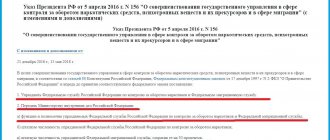The situation with coronavirus in Moscow continues to be alarming. Against this background, the decision to make vaccination mandatory for 60% of service sector workers, including catering, looks logical. A few weeks ago, the first vaccination centers for migrant workers opened in Moscow. How many outlets are open now? What do the visitors themselves think about this initiative? We decided to look into the situation and find out the details.
Today, 1.5 million foreign citizens work in Russia (according to the Federal Migration Service of the Russian Federation - editor's note). During the pandemic, more than 365 thousand work permits were issued in the capital alone. A large percentage of foreign citizens arriving from Tajikistan, Kyrgyzstan, Uzbekistan and other countries work in the service sector.
20:00 July 12
How should you prepare for vaccination and what not to do after?
Just a week ago, there were only two vaccination centers in Moscow where migrants could go. This was not enough - people stood in hours-long queues, asking for more outlets to be opened. Now there are already three centers and about 25 clinics.
Also last week, Yandex, together with the administration of the Moscow region, opened several vaccination points for citizens of foreign countries who cooperate with the company’s services.
Vaccinations can be obtained free of charge; the company has covered the costs. At the same time, judging by the number of people willing, there is a possibility that some people will still not have time to get vaccinated within the time frame established by the state.
Let us remind you that 60% of service sector workers must receive the first component of the vaccine by July 15, the second by August 15.
For or against?
Many of those working in the service sector in Moscow have already been vaccinated.
“I went for the sake of my loved ones, for the sake of other people. And, of course, my life, my safety is important to me,” Tajikistani Kh. Rasulov explains his decision.
Our compatriots who have already received the vaccine in the Russian capital note that they had no negative consequences after vaccination, although doctors everywhere warn that side effects sometimes occur in some categories of citizens.
“I sat for the required 30 minutes after the vaccination and went on to work. I felt good,” shared taxi driver Akmal.
Will Russia accept “extra Tajiks”
There is no need to think long about why Prime Minister of Tajikistan Kohir Rasulzoda met in Moscow with Deputy Prime Minister of the Russian Federation Alexei Overchuk. President of the Republic of Tajikistan Emomali Rahmon recently stated that last year, due to the closure of borders due to the coronavirus pandemic, 80% of Tajik migrants were unable to leave for work—Russia was especially singled out in this regard. More than 1 million Tajiks work in Moscow and the regions of the Russian Federation, engaged in construction work, agriculture and the housing and communal services system. Before the pandemic, they sent home about $3 billion a year, but 2020 was a disaster: remittances dropped by more than half. Meanwhile, they are the most important source of income not only for many ordinary families, but also for replenishing the GDP of all of Tajikistan.
In order to at least partially resolve the issue of getting rid of “extra people,” that is, employing Tajiks in Russia according to the “old model,” Moscow must open regular flights with Dushanbe, and this was the main topic of Rasulzoda’s negotiations with the Russian authorities, who have an ambivalent position . On the one hand, finding Tajik migrants - the most unpretentious and law-abiding - has already become critically important for many industries, on the other hand, Rahmon needs to make it clear that if Tajikistan joins the Eurasian Economic Union, which he is in no hurry to do, the issue of the return of migrants will be much resolved faster. In addition, Tajik migrants would enjoy significant socio-economic preferences in the EAEU area, including Russia.
The solution to the issue of resuming air traffic “at once” seems to be stuck for now. Meanwhile, requests for labor are officially coming from Russia to Tajikistan. And now the problem comes down to the opening of the sky, which Dushanbe has been asking Moscow for since last summer - it accounted for 70% of the total passenger traffic of the Republic of Tatarstan.
3735 Why is Mirziyoyev being “crowned” ahead of time
It was hard not only for migrant workers and their Russian employers, but also for Tajik students studying at universities in the Russian Federation - there are more than 29 thousand of them. How the issue of continuing their full-time education will be resolved is also unknown.
During the visit of the Tajik Prime Minister to Moscow, the problem of expanding economic ties and industrial cooperation was also raised. Dushanbe is striving to create joint ventures on the basis of its existing production facilities and in the territory of free economic zones. So far, Moscow seems to have limited itself to its readiness to expand the range of supplies of agricultural products and has expressed the interest of its IT companies in establishing contacts with Tajikistan - they have specific proposals regarding digital distance learning and telemedicine. In addition, Dushanbe was invited to join the “Travel without COVID-19” application to allow citizens of the republic to enter the territory of the Russian Federation.
But here is a “not blurred”, quite concrete agreement: this summer Russia will begin construction of five Russian schools in Tajikistan. Sites for their construction have been allocated in Dushanbe, Kulyab, Khujand, Bokhtar and Tursunzade. The educational process in them will begin in 2022, and according to Russian standards. Since the need for labor migration in the republic will not soon disappear, this is good news for Tajiks. They will be able to get a “cleaner” job in the Russian Federation, and in terms of language communication and adaptation they will not have problems. And another, “wider” window of opportunity will open for them if the republic joins the EAEU.
Question: why is the demand for migrant workers so high in vast Russia? Is it just because Russians disdain hard work, seasonal agricultural work under the scorching sun, and even construction work in the cold, to which migrants seem to be unaccustomed? Of course, there is also the factor of cheap labor and the unpretentiousness of “outsiders”, who until recently were completely powerless, but the situation has been somewhat changed for the better by new rules for labor migrants from the EAEU states.
43930
Why did the Armenians rush to this “damned Russia”?
Although the “in large numbers” irritate many, the pandemic and the shortage of workers in the Russian labor market have shown that without them it has become extremely difficult for the construction sector, the agricultural sector, and the housing and communal services sector. It is enough to look at the snow-covered streets of Russian cities to appreciate the hard work of migrants, which was somehow not visible before the pandemic. Now those who came in large numbers are willingly called back. Moreover, the Russian government has instructed a number of line ministries to work on the issue of attracting foreign citizens to at least seasonal agricultural and construction work in various regions of the country.
Meanwhile, labor migration is a fairly common phenomenon; it is not a “phenomenon” of the post-Soviet space. Almost all rich and developed countries need migrant workers. It is no coincidence that during the coronavirus pandemic, many of them opened their borders to seasonal workers, and even introduced certain privileges for them. It seems that Russia will follow the same path if it abandons excessive politicization of the issue.
As Leonid Kholod, Doctor of Economics, former Deputy Minister of Agriculture of the Russian Federation, told the Sputnik portal, vegetable and fruit growing are those areas where there is a peak need for temporary labor. In the USSR, he recalled, this issue was resolved with the help of students, and after the collapse of the Union, they were replaced by labor migrants. According to him, many of them have generic skills suitable for agriculture. The labor shortage, Kholod is convinced, can only be solved by the resumption of regular flights.
Interesting data was published by Bloomberg. According to his analysts, the shortage of migrant workers threatens Russia with an annual reduction in potential GDP growth of 25 basis points over 10 years. They also predict a shrinking workforce over the long term. It is noted that due to the shortage of migrants, many Russian enterprises, in particular construction ones, had to increase wages in order to attract workers to construction sites, but this measure did not give the desired effect - the vacancies are empty.
6985
Migrants cannot be left behind
According to Bloomberg, mass vaccination in the Central Asian republics could help fill the shortage of migrant workers in Russia, but many of them still do not have access to vaccines.
If we talk about Tajikistan, whose president almost swears that since January of this year not a single case of COVID-19 has been recorded in the republic, the World Bank two days ago approved the allocation of additional funding to the republic in the amount of $8.63 million as part of the project emergency response to the threat of the coronavirus pandemic. This money is intended for the purchase and delivery of “internationally approved” vaccines to the Republic of Tajikistan.
Let us note that the population of Tajikistan is close to 9.5 million, which is considered a critical indicator for this republic. Rosbalt has already written that the World Bank recommended that it limit the birth rate, since such a high population for a country, 93% of whose territory is occupied by mountains, is “unbearable” for its resources. In large cities, people are careful not to “create poverty,” but in rural areas, 8-10 children per family is the norm.
Continuing the topic of vaccination. The WB program is focused on vaccinating priority populations and preparing affected facilities for larger immunization efforts once additional COVID-19 vaccines become available. But for now there is no need to say that the majority of the population of Tajikistan will soon be vaccinated against “corona.” Although the Ministry of Health of the Republic previously announced a rather ambitious plan - vaccination of 6.7 million people, of which 5.8 million with Russian-made drugs. The rest will receive other vaccines through the COVAX program.
The faster the population of Tajikistan is vaccinated, the sooner, in theory, the outflow of workers from the republic to Russia and other countries should begin. But the questions of when the Russian Federation will let in Tajik migrants in the same numbers, and what are the plans for opening regular flights, still remain unanswered. And spring agricultural work is already around the corner. And other areas are in a protracted wait for “hard workers”.
Irina Jorbenadze
What do the Islamic clergy think about the vaccine?
Many believers were skeptical about the issue of vaccination. The Islamic clergy conducted a review and expressed an opinion.
The “International Center for Standardization and Halal Certification” under the Spiritual Administration of Muslims of the Russian Federation carried out work to study the composition of the Sputnik V vaccine. The study, which formed the conclusion of the council of ulema, revealed that there is nothing prohibited in the composition of the vaccine. This vaccine belongs to the Halal category, approved for consumption by Muslims,” said Imam Aidar Gazizov.
What migrants experienced in Russia
Almost the entire outgoing year was accompanied by reports of an acute shortage of air tickets for charter flights from Russia to Tajikistan. Among the Tajik citizens wishing to return to their homeland were also labor migrants who, under various restrictions, were unable to find acceptable work.
Despite the fact that airlines significantly increased the cost of a ticket (according to official Tajik statistics - by 30%), taking advantage of the sharp increase in demand from those in need of an urgent return to their homeland, the number of people wishing to purchase a ticket was at such a level that there was even a fight between employees Tajik diplomatic mission in Moscow with desperate compatriots.
According to the Embassy of the Republic of Tajikistan in the Russian Federation, since June 25, 2021, charter flights of domestic airlines have been operating daily from Moscow and other major Russian cities. During this period, it was possible to send more than 60 thousand citizens of Tajikistan to their homeland.
The quarantine measures introduced after the spread of the virus led to a sharp reduction in jobs in the Russian labor market: enterprises and retail outlets closed or limited their operations due to a drop in demand, which provoked an increase in unemployment, of course, primarily among migrants.
12:55 December 28, 2020
Money transfers for those close to the New Year are available in the CONTACT mobile application
According to Russian authorities, about 40% of migrant workers lost their jobs during the pandemic.
The Federation of Migrants of Russia reports that 80% of migrant workers who survived the pandemic in the country were able to restore their employment by the beginning of August.
In the second half of the year, after restrictions were partially lifted, Russian employers complained about a huge shortage of low-skilled labor, that is, “unskilled workers.” Typically, this labor was undertaken by migrants.
“The majority of our citizens, as the construction and services sectors have been restored, have returned to their jobs,” Tajik Ambassador to Moscow Imomuddin Sattorov said in an interview with Rossiyskaya Gazeta, emphasizing that there are 700 thousand Tajik migrants on Russian territory.
He expressed gratitude to the Russian authorities for taking timely measures to provide social support to migrant workers during the pandemic.
cabar.asia/









